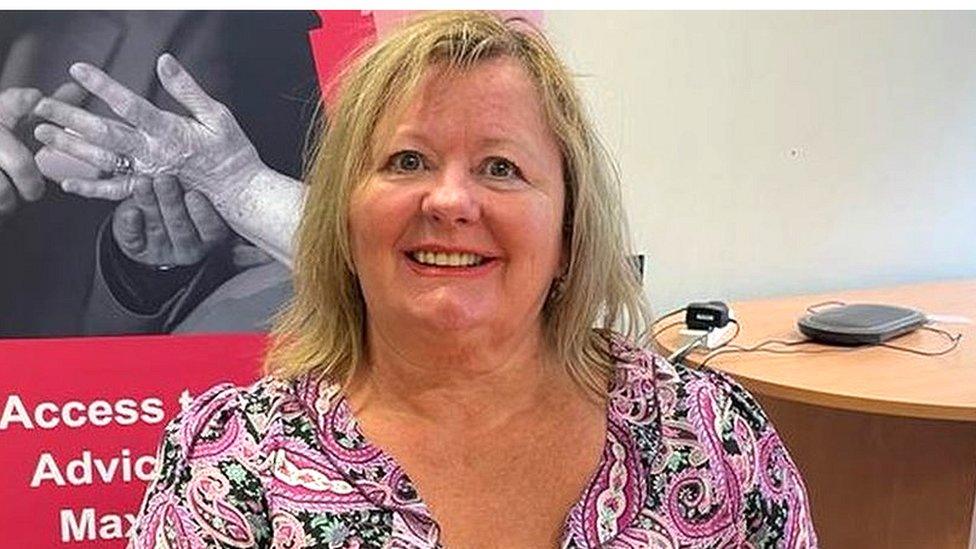'Significant delays’ to new disability benefits
- Published
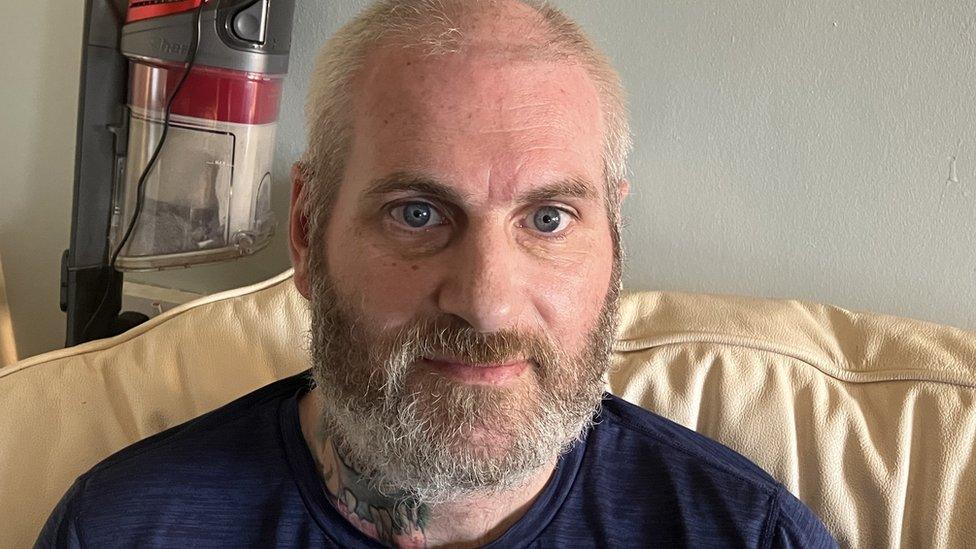
Robert Scott had to give up work as a chef due to a spinal injury
The roll-out of the Scottish government's new Adult Disability Payment has seen "significant delays", according to welfare rights groups.
They said new applicants for the benefit were facing waits of between four and seven months for a decision.
The new payment is replacing benefits such as personal independence payments (PIP) and disability living allowance.
The Scottish government took over responsibility for these benefits from the UK government last year.
Social Justice Secretary Shirley-Anne Somerville told the BBC that waiting times needed to decrease and said action was being taken.
More than 350,000 Scots are being automatically transferred to the new Adult Disability Payment, although the process is not expected to be completed until the end of 2025.
The benefit was opened to new applicants in August, with Scottish ministers pledging the process would be "more compassionate" than the existing Department for Work and Pensions (DWP) system.
However, welfare rights campaigners, including Enable Scotland, said it was taking "far longer than it should" for decisions to be made on new applications - and longer than the waits previously seen for PIP.
Disability campaigners also criticised First Minister Humza Yousaf for scrapping the dedicated social security minister role in March, at a time when the Scottish government was preparing to take over responsibility for further benefits.
One claimant told BBC Scotland he had been waiting since 16 December for a decision.
Robert Scott, from Kirkcaldy in Fife, said: "I knew there was a bit of a lengthy waiting list but I didn't expect to not even be at the starting line six months later."
Mr Scott had to give up work as a chef due to a spinal injury and said he takes "a lot of painkillers every day for chronic pain".
"I need to maintain a car for getting around and everything is getting more expensive," Mr Scott said. "Energy costs are eating everything up basically."
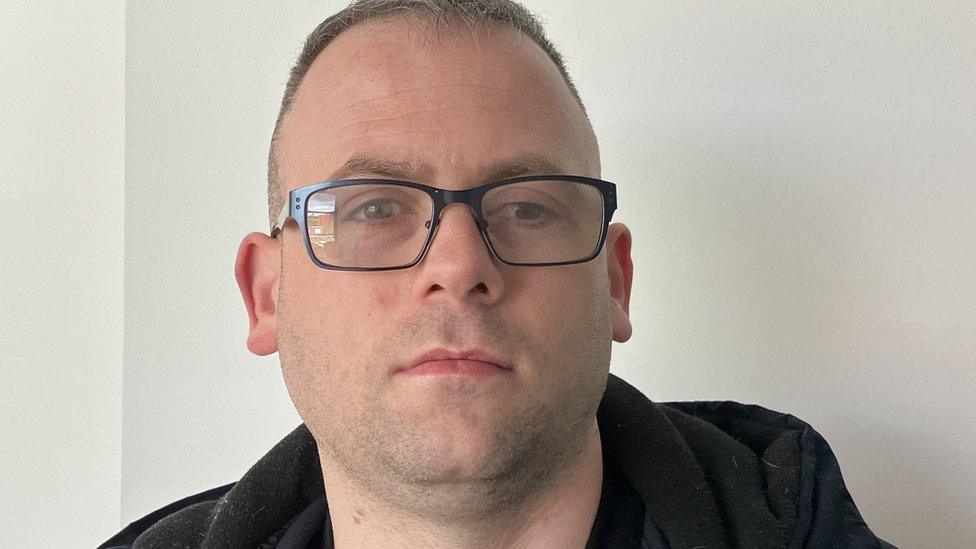
James Hamilton got his benefits approved after a seven-month wait
Mr Scott said the only correspondence he received from Social Security Scotland, the executive agency of the Scottish government with responsibility for the benefit provision, was a phone call in January to confirm a previous appointment.
He also got a call in February to confirm his address.
He said that despite trying to phone their helpline, he had never managed to get through to anyone.
"I think the longest I waited before giving up was probably about three hours," he said.
"You just sit on hold. You can sit there literally for hours."
James Hamilton, who has learning disabilities and mental health issues that make him unable to work, recently got his benefits approved after a seven-month wait.
Although he is relieved by the positive outcome, he said the impact of the lengthy wait on his mental health and finances was severe.
"I had anxiety and worries about money, because I had my PIP stopped," he told the BBC.
Mr Hamilton, who lives in Glasgow, was helped through his application by Steven McAvoy, a welfare rights officer with support service Enable Scotland.
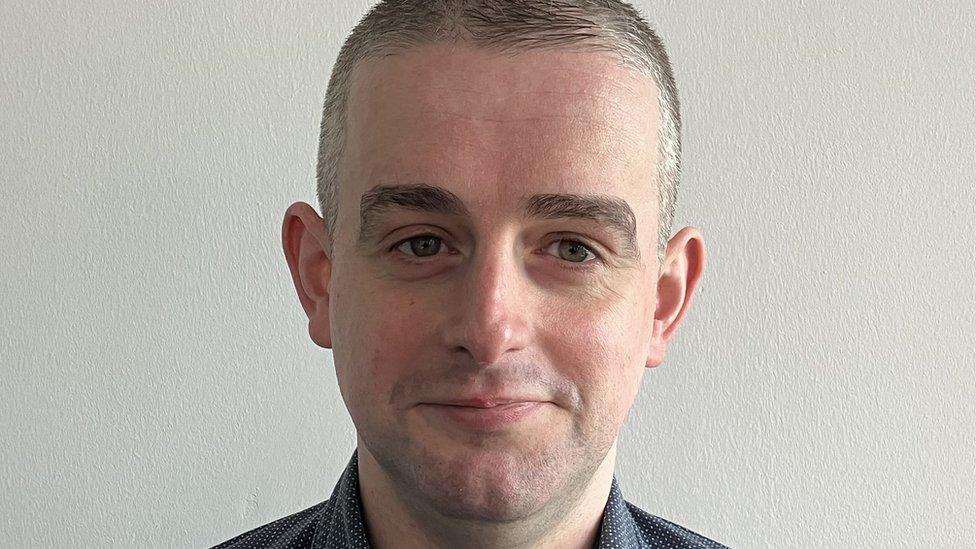
Mr McAvoy told BBC Scotland: "We are finding there are significant delays in coming to outcome decisions.
"While we would prefer a good decision that takes a little bit of time over a bad decision quickly, we would argue that the waits we're seeing at the minute aren't really acceptable."
He said that while the UK government's system "often made bad decisions that weren't accurate", these would usually be made within two or three months.
A key facet of the Scottish government's new payment was the promise that it would put "dignity, fairness and respect" at the heart of the decision-making process.
Mr McAvoy said that although the decisions they had seen from the new payment so far seemed to be of a good standard, it was "hard to give a proper picture" of how it compared to PIP because they were still waiting on so many outcomes.
He added that waiting times for the helpline were so long that Enable advisers, who support people with learning disabilities, were having to tell clients to call it themselves.
"We're actually having to tell clients what they need to ask because it's just practically not possible for us to sit on hold for hours and run an advice service," he said.
Scottish Labour's social security spokesman Paul O'Kane said: "We were promised a fairer, more compassionate system in Scotland, but instead waits are even worse than they are under the DWP.
"This a complete betrayal of disabled Scots, but the cabinet secretary is more interested in downplaying the chaos than apologising to the people being failed on her watch".
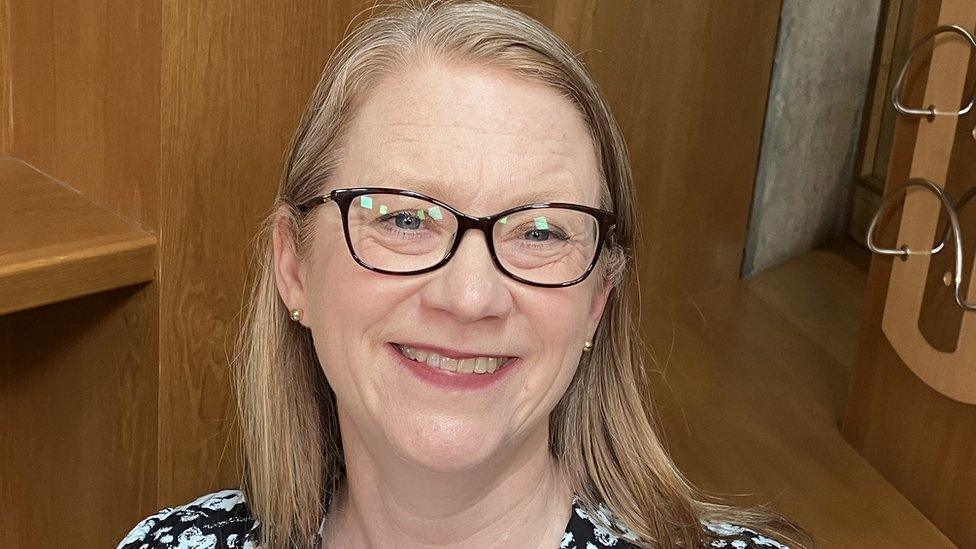
Social Justice Secretary Shirley-Anne Somerville said action was being taken.
Speaking to BBC Scotland, the social justice secretary insisted that the new benefit had seen "vast improvements" for disabled people.
She said: "They are telling us that they feel they've been believed for the first time, compared to what used to happen in DWP with PIP."
Ms Somerville said there was an average waiting time of about four months, with a "small number of cases that are taking longer than that".
"In those particular cases, the agency is now looking at those with even more degree of urgency than they were already doing," she said.
The minister acknowledged she wanted to get four-month average down and said a number of actions were being taken.
These include having Social Security Scotland staff call each applicant "as soon as they have looked at their case" to ask for any missing or supporting information.
Ms Somerville said that "unlike with the Department for Work and Pensions", Social Security Scotland often collects supporting information on behalf of applicants, meaning that obtaining this from GPs and social care services "can take time".
In a statement, Social Security Scotland added that as a result of changes, the agency was reaching decisions "on more cases per week than ever before".
- Published7 February 2023

- Published16 March 2022

- Published29 August 2022
